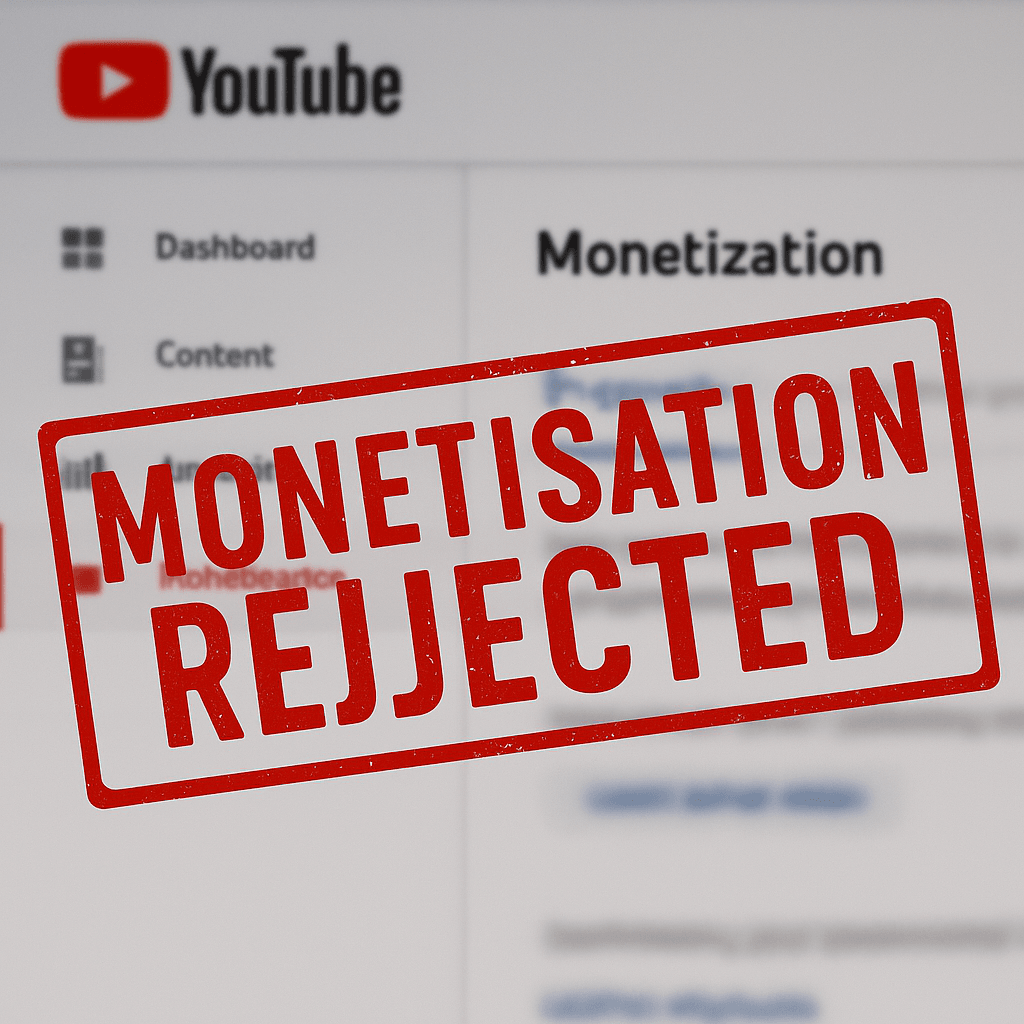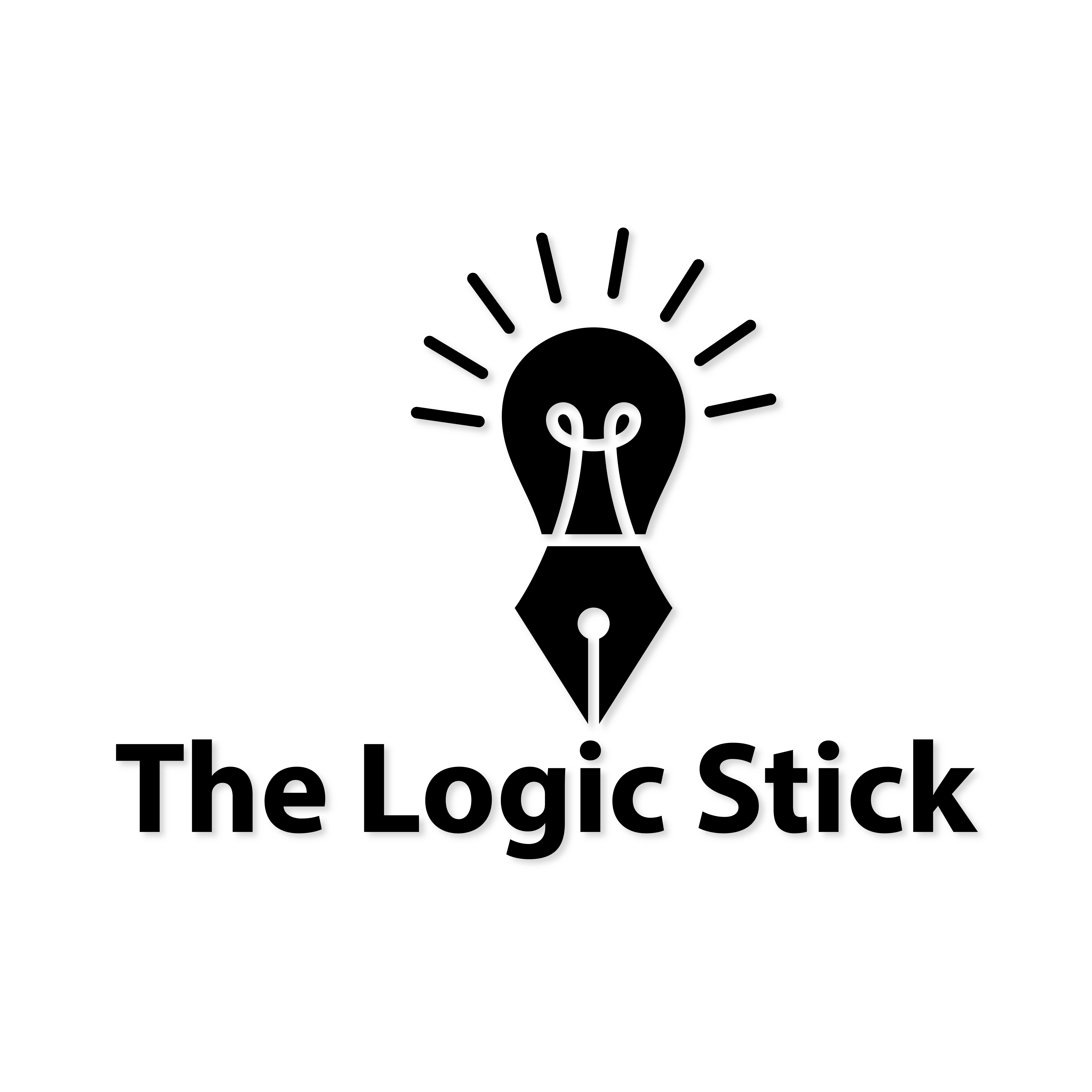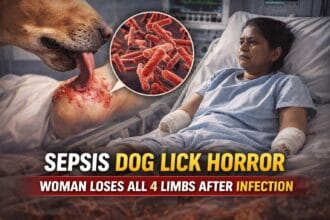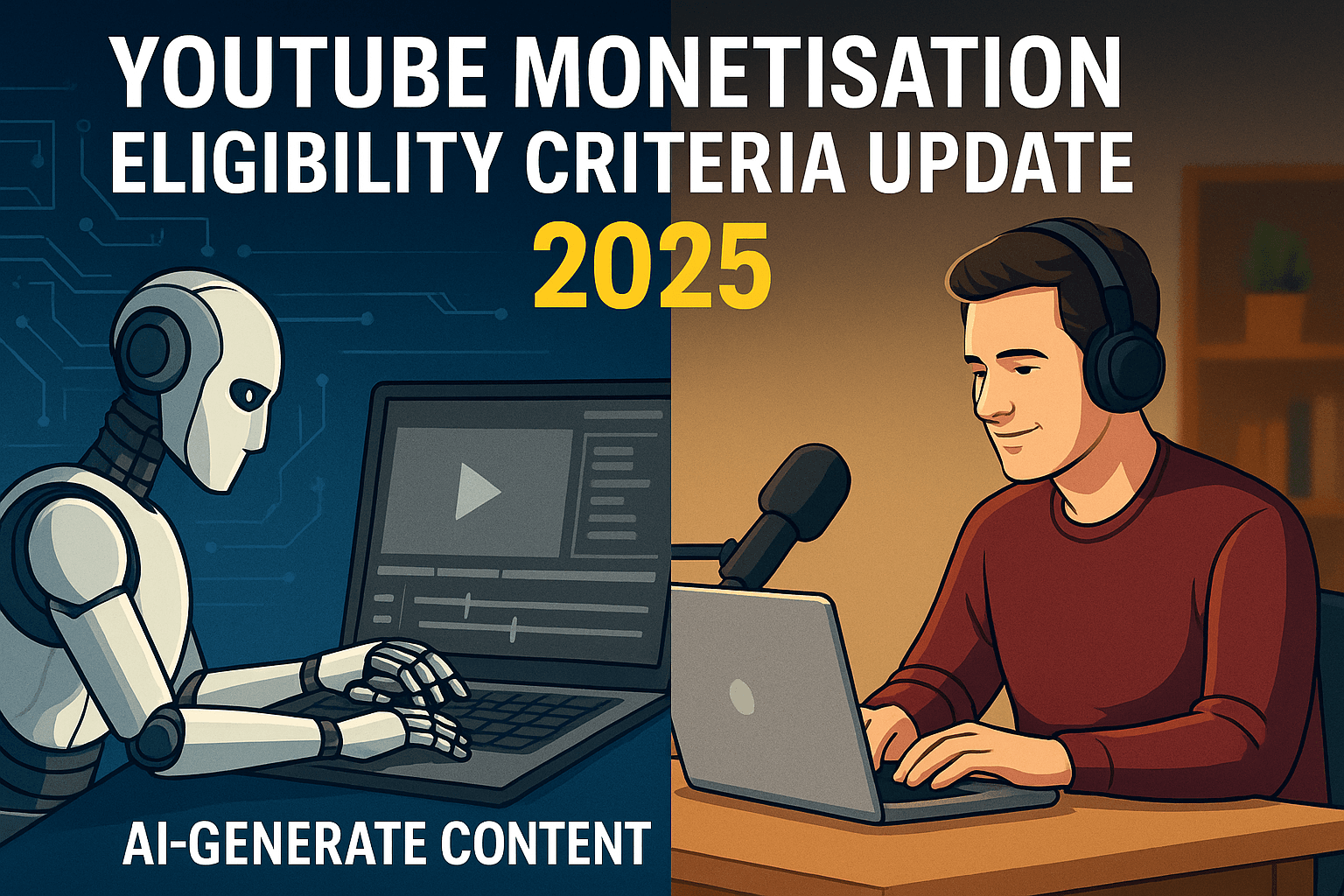
The YouTube Monetisation Eligibility Criteria Update, launching on July 15, 2025, is set to transform the content creator landscape. In its boldest move yet, YouTube will introduce stricter content originality rules under the YouTube Partner Program (YPP), directly impacting monetisation for both AI-generated and repurposed content. While the update aims to improve content quality and advertiser trust, it has raised critical questions:
Will AI-first channels survive? What qualifies as original content now? And will this mark a turning point for OG creators?
In this detailed blog, we break down:
- What’s changing with YouTube’s monetisation policy
- How it will affect both AI and original content creators
- The new eligibility and compliance standards
- Actionable strategies to stay monetised and grow in 2025
What’s Changing in YouTube Monetisation?
According to Google’s latest announcement, YouTube is introducing stricter rules to ensure that monetised videos meet higher originality and quality standards. This means a tighter crackdown on:
- Reused content: Uploads of other creators’ videos without meaningful transformation
- Mass-produced videos: Generic slideshows, AI-narrated listicles, or content stitched together with little effort
- AI-generated content: Videos created using AI tools with minimal or no human curation
- Shorts cut from long videos: Without added context or creativity
Channels violating these standards may lose their monetisation privileges or be removed from the YouTube Partner Program altogether.
Why This Update Now?
In recent years, YouTube has seen a surge of low-effort content, especially from AI-generated tools and “content farms” mass-producing videos for views. While automation tools have allowed for scalability, they’ve also:
- Diluted content quality
- Reduced viewer satisfaction
- Hurt advertiser trust and CPM rates
YouTube’s monetisation update is designed to clean up the platform, reward original storytelling, and protect its long-term business model. In short, it’s a signal that quality now matters more than quantity.
Who Will Be Affected Most?
1. AI Content Creators
AI-generated videos are everywhere—from explainer reels to faceless voiceover videos with stock visuals. But under the new rules, content that lacks human commentary, perspective, or creativity will no longer qualify for ads.
Examples of content that may lose monetisation:
- Listicles narrated by AI voices
- News wrap-ups with stock footage and no commentary
- Tutorials copied from articles without human insight
Key takeaway: Using AI tools is still allowed—but only if the final product is meaningfully enhanced with human input, emotion, or opinion.
Also read – The Real Truth About Dubai Real Estate Bubble & Golden Visa
2. Original (OG) Creators
For traditional YouTubers who film themselves, add personal insight, and build authentic communities, this update is a welcome change.
Pros:
- Less competition from spammy AI content
- Better ad revenue due to overall content quality increase
Cons:
- Repurposed content (like podcast clips or livestream highlights) may also be flagged unless it’s edited for platform fit and viewer engagement
- Simply cutting Shorts from long-form content won’t be enough—you need to add context or new value
Bottom line: Original creators must now double down on storytelling, editing, and intent.
Monetisation Eligibility: What Remains the Same
While content requirements are tightening, the baseline eligibility for YPP hasn’t changed:
- At least 1,000 subscribers
- 4,000 public watch hours in the past 12 months OR 10 million Shorts views in the last 90 days
However, meeting these numbers doesn’t guarantee approval. If your content is flagged as repetitive, AI-cloned, or lacking originality, your application may be rejected, or worse, an existing channel could be demonetised without prior notice.
Will YouTube Notify Violators?
As of now, YouTube hasn’t promised any warning system.
- Creators may be demonetised without prior alert
- There’s no strike system for originality violations—removal could be immediate
- Appeals are possible, but only with strong evidence of transformation or commentary
This strict enforcement is meant to discourage lazy duplication and raise the bar for everyone.
How to Stay Monetised in 2025
Whether you’re using AI tools or crafting content manually, here’s how to remain monetisation-safe:
✅ AI Users:
- Use AI as a support tool, not a replacement
- Add your voice, commentary, or on-screen presence
- Avoid generic visuals—personalise and localise your content
✅ Original Creators:
- Avoid uploading raw podcast/livestream clips—edit for pacing, story, and retention
- Use Shorts to extend your storytelling, not just crop and repost
- Add subtitles, transitions, and hooks to stand out
✅ All Creators:
- Focus on viewer experience—not just views
- Watch your analytics: if your content has high bounce rates or low retention, it might get flagged
- Follow updates on YouTube’s Help Center and Creator Insider regularly
Industry Reaction: A Divided Ecosystem
- Brand advertisers: Applauding the move—expecting better engagement and safer ad placements
- Original creators: Feel vindicated, finally getting rewarded for their effort
- AI-driven creators: Concerned, especially those whose channels were built entirely on automated content
Some AI-first creators are shifting to platforms like Rumble, Bilibili, or even blogs and newsletters.
Final Thoughts: Adapt or Fade
The YouTube Monetisation Eligibility Criteria Update 2025 isn’t about censorship. It’s about clarity. YouTube is signaling to creators: “We want quality, authenticity, and human-driven storytelling.”
AI is not going away—but creators must find ways to blend it with their unique human value. The days of faceless, voiceover-driven content making passive income are fading fast.
If you’re building a content career in 2025, the message is clear:
- Be original.
- Be intentional.
- Be human.
Subscribe to our YouTube Channel
Tags
YouTube Monetisation Eligibility Criteria Update, YouTube monetisation policy 2025, AI content demonetisation YouTube, YPP 2025 rules, July 2025 YouTube monetisation update, how to stay monetised on YouTube, YouTube content originality guidelines, AI video monetisation policy, YouTube Shorts eligibility 2025ginality rules, July 2025 YouTube update






